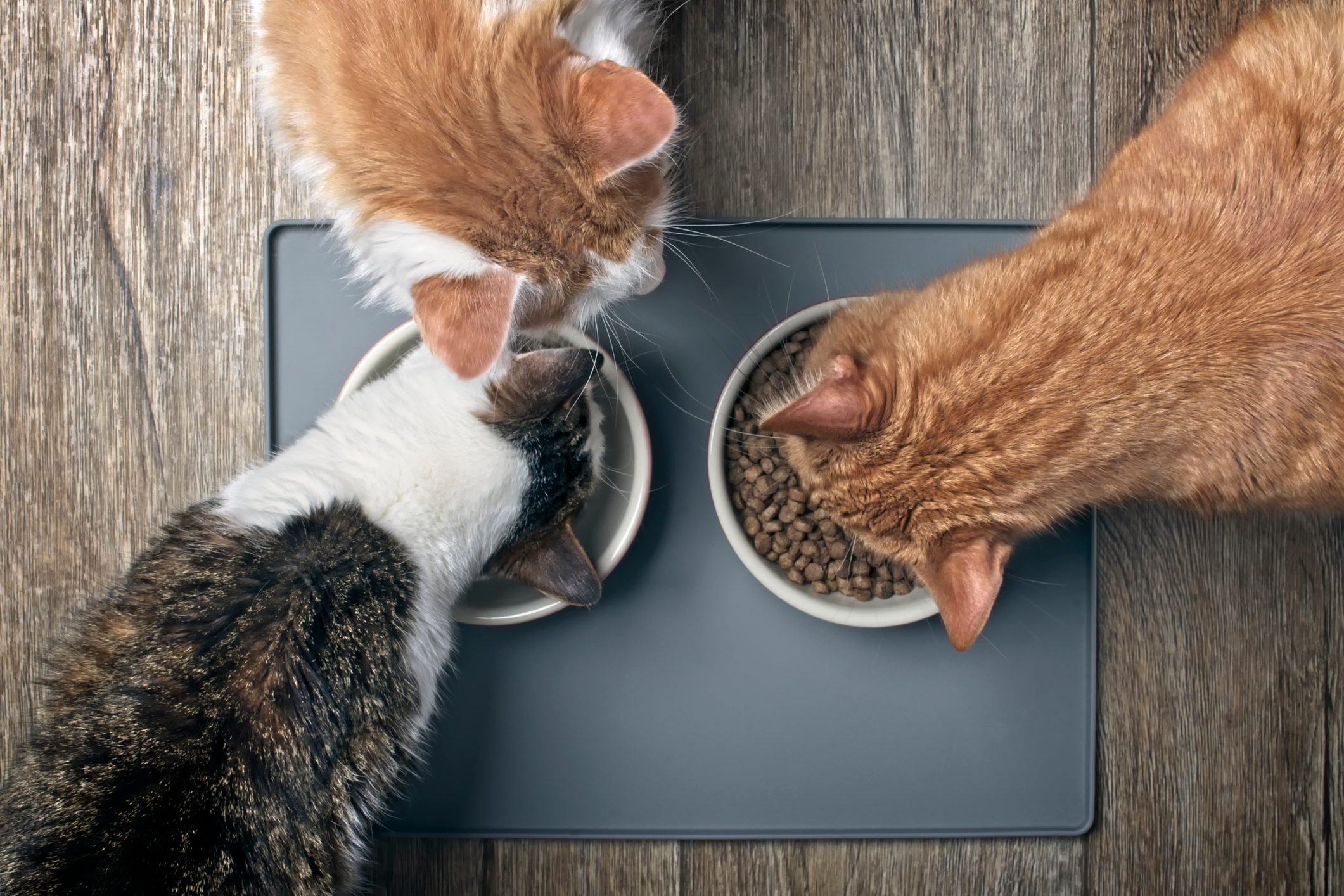Nutrition is one of the most important parts of a cat’s health and has a major impact on overall health, energy levels and longevity. A balanced and tailored diet is more than just nutrition. It is an important part of keeping our feline friends healthy, preventing disease and maintaining a healthy weight. In this detailed guide, we’ll tell you more about the important role nutrition plays in your cat’s health.
1. Understanding What Cats Need to Eat:
What Cats Need to Stay Healthy
Because cats need to eat meat, their food needs are different from those of other animals. Protein is the building block of food. They are important for building muscle, keeping your immune system healthy and repairing damaged tissue. Cats cannot make the amino acids they need themselves, so they must get them from sources such as chicken, fish and meat.
Healthy fats are just as important because they give you energy, keep your coat shiny and help your body absorb fat-soluble vitamins. Cats also need important vitamins and minerals such as A, D and E, as well as calcium and phosphorus for strong bones and teeth.
Taurine, an amino acid important for heart and vision health, is one of the most important nutrients. Cats, like other animals, cannot produce enough taurine on their own, so they must get it from food.
2. Tailoring the Diet to Life Stages:
Cats have different nutritional needs at different times in their lives. Kittens grow quickly at first, so they need more calories, protein and fat to stay healthy. Their food should be rich in nutrients that help them grow and develop their brains.
Once cats reach adulthood, they need a varied diet to maintain the same weight and energy levels. Protein is still important, but you need to watch how much you eat if you want to avoid gaining weight. Older cats may benefit from lower calorie meals and supplements that help keep their joints healthy.
3. How Important it is to Stay Hydrated:
Water: An Important Food
Cats don’t get enough water, but it’s just as important as any other vitamin. Cats are not often thirsty. This is because their ancestors drank a lot of water from the animals they killed. On the other hand, this property can lead to prolonged dehydration, urinary tract problems and kidney problems.
Because wet cat food contains more water, it helps cats stay well hydrated. Making sure there are plenty of clean, fresh water sources in the home will help your cat drink more.
4. Feeding Problems:
Obesity and Getting Rid of Excess Weight
Obesity is a major problem for modern cats. It can lead to diabetes, arthritis, and heart disease, among other things. Some reasons are being too lazy and overeating. To fight fat, it is important to control the amount of food you eat. Measuring food and avoiding overcooking are two important things. A cat’s plan should also include time for play and walks.
Allergies and Intolerances to Food
Just like humans, cats can have allergies or sensitivities to certain parts of their food. Symptoms such as stomach problems, skin problems and persistent itching are common. Using an elimination diet or trying safe foods can help find the allergen. A doctor’s help is needed to control food allergies and choose the right foods.
5. How to Choose the Best Cat Food:
Read Cat Food Labels
Cat food labels can be difficult to read and understand. The main ingredient must be a high-quality protein source with as few carbohydrates or by-products as possible. Avoid lab-made additives and stabilizers. Look for labels that say it meets the rules for a fully balanced diet set by the Association of American Feed Control Officials (AAFCO).
Buying Cat Food Versus Making It Yourself
Pet owners often have to choose between buying cat food and making it yourself. Commercial cat foods are made to meet the nutritional needs of cats and are readily available. You can build your own diet to meet your needs, but you need to plan it carefully to make sure you get all the nutrients you need. If you want to give your pet something that you have made yourself, you should first consult a veterinarian or a veterinary nutritionist.
FAQs:
1. Can I give my cat dog food in an emergency?
Not recommended. Cats and dogs have different nutritional needs, and dog food may not provide the nutrients cats need to be healthy.
2. Is vegetarian food suitable for cats?
Cats are obligate carnivores, which means they need animal protein. A vegetarian diet can be deficient in essential nutrients and can lead to health problems.
3. Can cats drink milk?
Contrary to popular belief, many adult cats are lactose intolerant and can experience digestive problems from drinking milk.
4. How can I get my cat used to a new diet?
A gradual transition over 7-10 days can help prevent digestive problems. Mix more and more of the new food with the old food to get your cat used to it.
5. Is a raw food diet recommended for cats?
A raw food diet carries the risk of bacterial contamination and nutritional imbalances. Consult your vet before considering a raw food diet.
